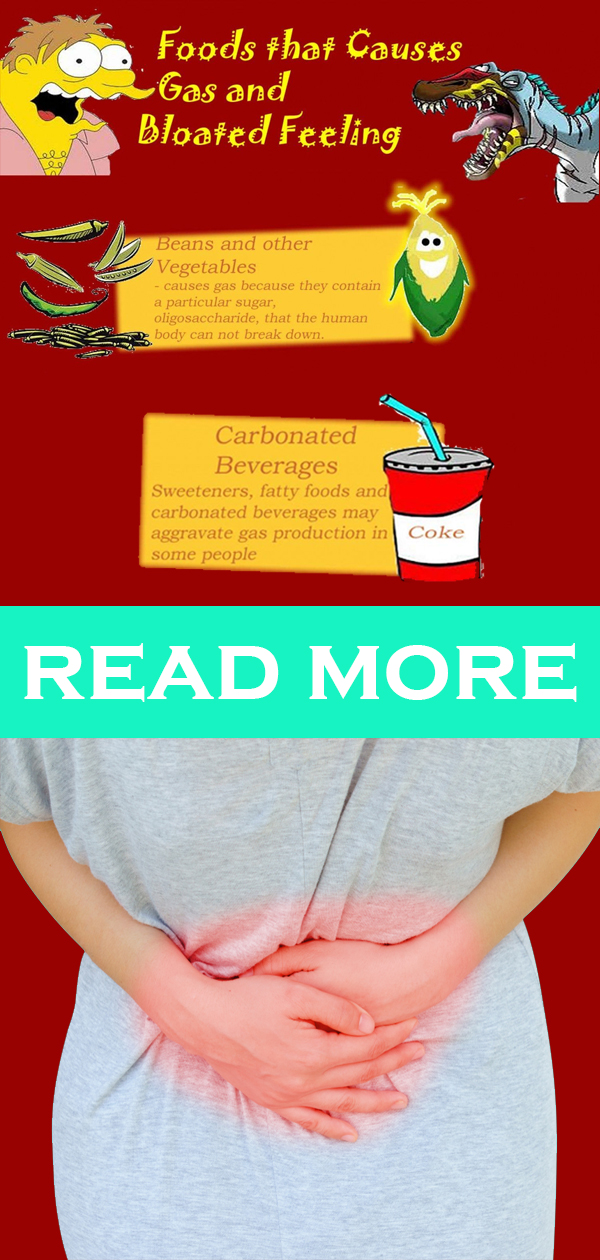Around 13% of people in the United States are affected by gas and bloating. Mostly, frequent bloating is the result of an unhealthy or unsuitable diet. If you have been facing digestive distress by eating some of your favorite foods and don’t know what a hit or a miss is, read on. This article talks about five foods that cause gas and bloating.
1. Carbonated Drinks
Choosing healthful options to help with bloating. However, it is advisable to ensure substituting beverages do not contain large quantities of sugar. Carbonated drinks such as sodas can make you feel bloated. Drinks that contain carbon dioxide gas travel directly to your digestive tract and cause gas and bloating.
Moreover, if carbonated beverages are consumed on a daily basis, they may create other health issues. According to the American Journal of Public Health, drinking carbonated drinks also shoots up the risk of diseases such as diabetes and lead to weight gain.
Some of the healthy alternatives to carbonated beverages are fresh vegetable and fruit juices, flavored water or plain water, lime or lemon juice, green and black tea, and milk.
Going for the healthy options will not cause bloating and gas and also manage your weight properly. You must also note that alternatives to carbonated drinks must be healthy and not contain too much sugar as consumption of excess sugar is unhealthy.
2. Beans
Beans are high in carbohydrates, protein, vitamins, fiber, and minerals. It is one of the main foods that cause gas and bloating due to their high fiber content. Moreover, beans are also loaded with oligosaccharides, which are types of sugars that the body does not find it easy to breakdown. That is why people can find it challenging to digest beans. Consuming a large number of beans can cause health issues such as bloating, gas, among others.
Some types of beans are easier to digest that include mung beans and adzuki. Or, if you want to skip beans altogether, you can opt for other alternatives such as grains, quinoa, lentils.
Furthermore, it has been seen that soaking beans before cooking them or adding to meals make it simpler to digest and also treats digestion problem
You can also eat small portions of beans to avoid gas and bloating. This also helps in building “good” gut bacteria that, in turn, helps in reducing gas and treat indigestion problem
3. Barley and Rye
Barley and rye are both cereal grains. Rye is related to the wheat family. Although both barley and rye are packed with vitamins, minerals and have high nutritional value, when consumed in large quantities can cause gas and bloat. This is largely due to the high gluten and fiber content of the cereal grains.
If you want to replace these two cereal grains, you can opt for alternatives such as brown rice or oats. You can also go with gluten-free cereals and get rid of gastritis problems. Moreover, some people also opt to choose pseudocereals that include quinoa and buckwheat.
Pseudocereals are grain-like seeds that are derived from non-grass plants. You can have these just like you eat regular cereals. However, pseudocereals are known to be highly nutritious when compared to traditional cereals due to the former’s high content of dietary fiber and protein.
-
Cruciferous Veggies
Vegetables such as cabbage, cauliflower. Brussels sprouts, garden cress, and broccoli, among others, are known as cruciferous vegetables. These veggies are packed with high nutritional value and contain fiber, vitamins K and C, potassium, and other essential nutrients. But cruciferous vegetables can be troublesome and cause digestive distress such as gas and bloating.
Eating these vegetables raw can make it tough to digest. However, cooking or boiling them before eating can be easier for you to digest. You can always replace these veggies with other options that are healthy, as well as do not cause gas and bloating. Some of these include-
- sweet potato
- spinach
- celery
- ginger
- carrots
- asparagus
5. Garlic And Onions
Both onions and garlic contain fructans. These are soluble fiber that is known to cause gas and bloating. Fructans are also present in wheat, leek, agave, and other foods that cause gas. For some people, consumption of garlic and onions even in small portions can cause gas and other digestive distress.
If you are allergic to onions and garlic, consuming it may increase the chances of belching, gas, and bloating. You can use other herbs and spices such as basil and chives in place of garlic or add collard greens, fennel, and celery for onions. So, the next time you want to know about if your meal contains gas-inducing foods, keep this article handy.
Author Bio:
Henna is a wellness lifestyle writer. She loves sharing her thoughts and personal experiences related to natural remedies, yoga and fitness through her writing. She currently writes for How To Cure. She can connect with others experiencing health concerns and help them through their recovery journeys through natural remedies.
Reference links
https://www.betterhealth.vic.gov.au/health/conditionsandtreatments/flatulence

